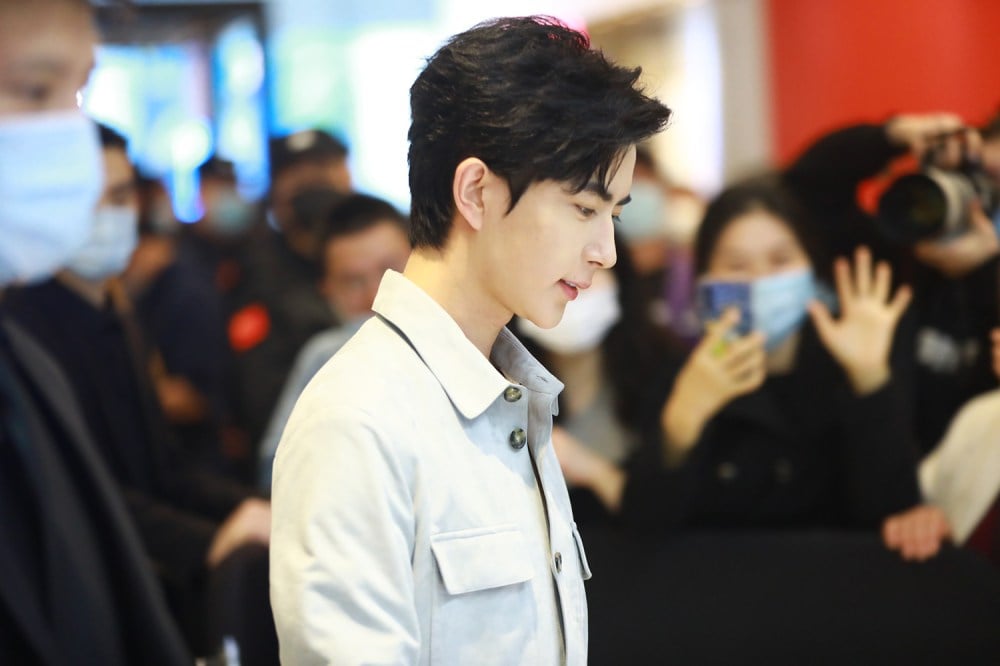The mysterious death of Chinese actor Yu Menglong has sent ripples through the Chinese-language internet, despite the best efforts of censors to suppress the news. Shortly after Sept. 11, reports emerged that his crumpled body had been found at the base of a multistory apartment building. Police labeled the death an “accidental fall” involving alcohol, then swiftly ruled out criminal activity without going into detail. Brief media notes echoed this finding.
The sanitized story—and utter silence following a well-known entertainer’s death—struck many as bizarre, prompting netizens to question the official version of events. Alternative theories began circulating online, claiming that Yu had been the victim of foul play or that higher-level authorities had ordered a hush-up.
Though he never reached the highest echelons of stardom, the 37-year-old Yu still attracted a notable following, with roles in several popular dramas such as Go Princess Go (2015); Eternal Love (2017); and The Legend of the White Snake (2019); and 26 million followers on Weibo, a major social media platform. The actor also participated in the reality show Shine! Super Brothers, featuring a cadre of male entertainers—some past their prime, but with sufficient star power to pull in viewers. Raised by a single mother, Yu maintained a reputation for kindness and impressed the public with his down-to-earth persona. He reportedly clothes-shopped on Taobao, where he left positive reviews for small vendors.
Yu’s untimely end—followed by the government’s attempt to close the case in a hurry, with the verdict of suicide reportedly issued in less than a day—lit up Chinese social media. Lurid and largely unsubstantiated details rapidly spread across social media platforms, as netizens speculated about the culpability of several actors and producers who attended a party with Yu the night that he fell, the indignities that he might have undergone to advance his career, the supposed involvement of an allegedly illegitimate son of Politburo member Cai Qi, and even allegations of officials laundering money through the entertainment industry, along with the cryptic existence of a USB drive carrying incriminating data.
Chinese censors jumped into action to stamp out mentions of Yu, who coincidentally shares the same June 15 birthday as Chinese Communist Party (CCP) leader Xi Jinping. Accounts questioning the government’s take or calling for further investigation have been deleted; only posts matching the official line remain online. Ever resourceful, netizens have responded by churning out new accounts to spread their views or leave obliquely critical comments, engaging in real-time digital combat with the censors.
As the issue gained steam, media in Hong Kong, Singapore, and Taiwan, as well as a Mandarin-language daily in the United States and even the BBC’s Mandarin service, all picked up the thread by publishing multiple pieces over the past two weeks. Outside the Great Firewall, talk shows have spent hours dissecting a high-interest story that has grown too big to ignore. Netizens also started to surface other instances where actors and actresses passed under similarly hazy circumstances.
Earlier this year, the Chinese government launched a campaign renewing its efforts to “clean up” the internet by removing content that the party deems unwholesome. This latest case only adds to the challenge. Though the true details of his death remain shrouded in mystery, the response to Yu’s case by the public and the authorities has implications for Communist Party control over mass media and the viewers who consume it.
First, Chinese fans can be extremely dedicated to their idols, for good or ill. In an unforgiving economic rat race—the common abbreviation “996” refers to brutal workdays that stretch from 9 a.m. to 9 p.m. in the office, six days a week—idol dramas that cast well-known singers and celebrities in key roles offer a temporary respite. (Idol culture and the pressure of fan judgment also hold great sway in places such as South Korea and Japan).
When that small, yet soothing, bubble of fantasy is pierced by harsh realities, grief-stricken fans end up taking to the internet. Yu’s positive aura and sterling reputation, which some contrasted with the sleazier characters that also inhabit China’s entertainment sphere, may have further contributed to a strong public reaction.
Second, a ham-handed cover-up can incite a rebound effect, wherein enraged netizens join a pitched digital battle against the “official story” touted by state media. Censors are so reactive that stories can be buried for any number of reasons, many of them relatively trivial. This is often effective, and the story disappears—but sometimes, the censorship itself becomes the story, sparking any number of conspiracies to explain why the news is being covered up. Like an ouroboros in a reinforcing loop, the censor chasing a rumor becomes a serpent eating its own tail, generating a new story that incites further outrage, which then requires even more censorship.
Committed fans work unceasingly to unearth what they believe is new evidence and to surface alternative theories—some outlandish, others more plausible, all challenging the official line. Yu’s fans seem unpersuaded that the government—whether that’s the police or other agencies—will ever offer an unbiased report of his death. (Was it an accident, a suicide, a push? What other parties were involved? Will anyone ever be held to account?)
But without a truly independent media inside China that can look into the case, netizens have instead engaged in their own scrappy investigations to fill the void. The excavating ability of the Chinese internet has been demonstrated in cases ranging from public anger at unwarranted privileges obtained by a few elites to meaningful digital activism during COVID-19.
In Yu’s case, as with many others, transparency from the outset might have been helpful. But that rubs against the CCP’s instinct for control, especially if a damaging narrative could emerge.
Finally—and perhaps most demoralizing—the actor’s demise speaks to the impunity that reigns in a CCP-dominated system. If a high-profile figure such as Yu Menglong can simply be removed from public consciousness, a Chinese viewer might think, what about a regular person like me? Rule of law is usually quite far from people’s minds when flashy shopping malls beckon, cheap eats can be ordered by app, and online TV shows abound. However, its absence is felt much more keenly when the regime’s mask slips, recalling the helplessness that an ordinary person in China felt during the deepest days of the COVID pandemic.
Yu once participated in Super Boy, an American Idol-like show where Chinese viewers could vote for their favorite performer week after week. Since then, shows with live viewer voting have been forced off the air by Beijing—they smacked too much of democracy for the regime’s comfort. In Yu’s case today, the odds are stacked in favor of a well-oiled censorship machine, and state power will likely prevail. Yet with every incident that pierces the veil—including one with a face so memorable—the CCP’s legitimacy is temporarily weakened.
When they register, such moments have the potential to seed distrust in the minds of more than a few Chinese citizens, who might otherwise pay little heed to politics. But just as often, they prove as fleeting as celebrity gossip anywhere else, especially when the authorities can persist for much longer than momentary dissidents can. Whether protests come in the form of white paper, crimson thumbprints, green domes, or red protest banners, it is difficult to discern when moments like this wear away at the foundations of censorship and when they are only ephemeral.
The post The Chinese Public Is Obsessing Over a Perceived Celebrity Cover-Up appeared first on Foreign Policy.




